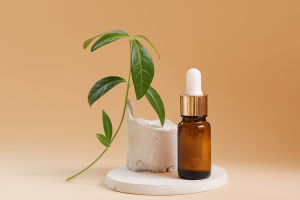
Hello, Lykkers!
Handmade organic soap is a wonderful way to cleanse your skin while avoiding harsh chemicals found in commercial soaps.
Not only is it gentle on the skin, but it can also be customized with various natural ingredients to suit your needs. Here’s everything you need to know about handmade organic soap.
Benefits of Handmade Organic Soap
1. Natural Ingredients:Handmade organic soaps are crafted using natural ingredients like plant-based oils, essential oils, and botanical extracts. This means they are free from synthetic additives, preservatives, and fragrances.
2. Gentle on Skin:
The natural oils used in organic soap help to moisturize and nourish the skin, making them suitable for all skin types, including sensitive skin. They can help maintain the skin’s natural moisture barrier.
3. Customizable:
You can easily customize handmade soap with your favorite scents, colors, and ingredients. Adding herbs, exfoliants, or essential oils allows you to create a product that meets your specific skincare needs.
4. Eco-Friendly:
Many handmade soaps use sustainably sourced ingredients and come with minimal packaging, making them a more eco-friendly option. Supporting small artisans who create handmade soap can also contribute to local economies.
5. Aromatherapy Benefits:
Using essential oils in your soap can provide aromatherapy benefits. Scents like lavender can promote relaxation, while citrus oils can invigorate and energize.
How to Make Handmade Organic Soap
If you're interested in making your own organic soap at home, here’s a basic overview of the process:
1. Gather Ingredients:
Common ingredients include oils (such as olive oil, coconut oil, or palm oil), lye (sodium hydroxide), and distilled water. You can also add essential oils, herbs, or natural colorants.
2. Safety First:
Always wear gloves and goggles when handling lye, as it is caustic and can cause burns. Work in a well-ventilated area.
3. The Saponification Process:
Combine the lye with water, allowing it to cool. In a separate container, heat your oils. When both mixtures reach a similar temperature, gently mix them together. Stir until the mixture reaches "trace," indicating it's ready to pour into molds.
4. Let it Cure:
Let the soap rest in the molds for 24-48 hours before removing it and cutting it into your desired shapes. Let the soap cure for 4-6 weeks before using, which allows the saponification process to complete.
Conclusion
Handmade organic soap is a luxurious and healthy choice for your skincare routine. With its natural ingredients and customizable options, it provides numerous benefits for your skin and the environment. Whether you choose to purchase from local artisans or make your own, embracing handmade organic soap is a wonderful way to indulge in self-care! Lykkers!
Homemade lemon turmeric soap🍋 Natural cold process soap making w/ recipe
Video by tellervo


